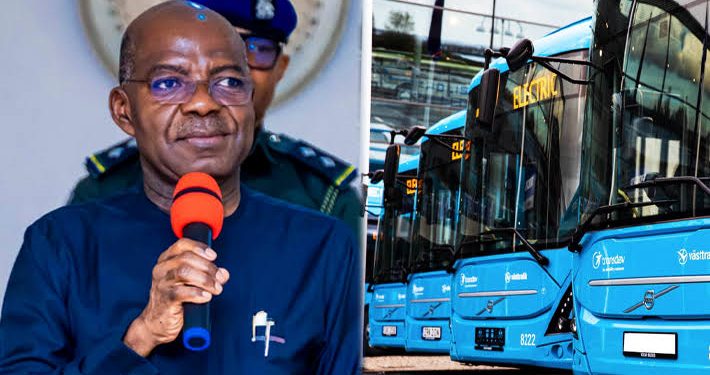Abia State Governor, Alex Otti, is set to introduce a new electric vehicle (EV) public transport system, known as the Abia Green Shuttle Service, marking a major step toward modernising the state’s transport network and advancing environmental sustainability.
In a statement issued by the Governor’s Chief Press Secretary, the initiative was described as a strategic move to position Abia as a leader in clean and future-focused transportation in Nigeria. The project aligns with global climate goals and aims to reduce reliance on petrol, diesel, and even compressed natural gas (CNG), transitioning instead to cleaner energy solutions.
The state government plans to deploy 100 electric buses across major urban centres including Aba, Umuahia, and Ohafia. The first batch of 20 electric buses, supported by 10 charging stations equipped with facilities for persons with disabilities, is expected to become operational before the end of the year. A second batch of 20 will follow early next year, alongside additional charging infrastructure.
New modern bus terminals and bus stops are nearing completion in Aba and Umuahia, with route mapping underway to ensure efficient service delivery. The transport network will be powered partly by renewable energy, with solar power and battery storage systems reducing dependence on the national grid.
According to the state government, the initiative is designed not only to tackle emissions but also to enhance commuter safety, with designated stops to reduce road accidents. It is also expected to create new jobs, stimulate local economic activity, and elevate service standards in public transportation.
Describing the project as a milestone in Abia’s development agenda, the government said the Green Shuttle Service reflects a long-term commitment to innovation, sustainability, and improved quality of life for residents.
For small businesses, particularly those in transport services, automotive maintenance, charging infrastructure, and roadside commerce, the new EV shuttle system could open opportunities in renewable energy services, fleet maintenance, spare parts, and mobility partnerships. The shift to electric buses may also influence future transport regulations and create demand for new skills in the state’s workforce.










